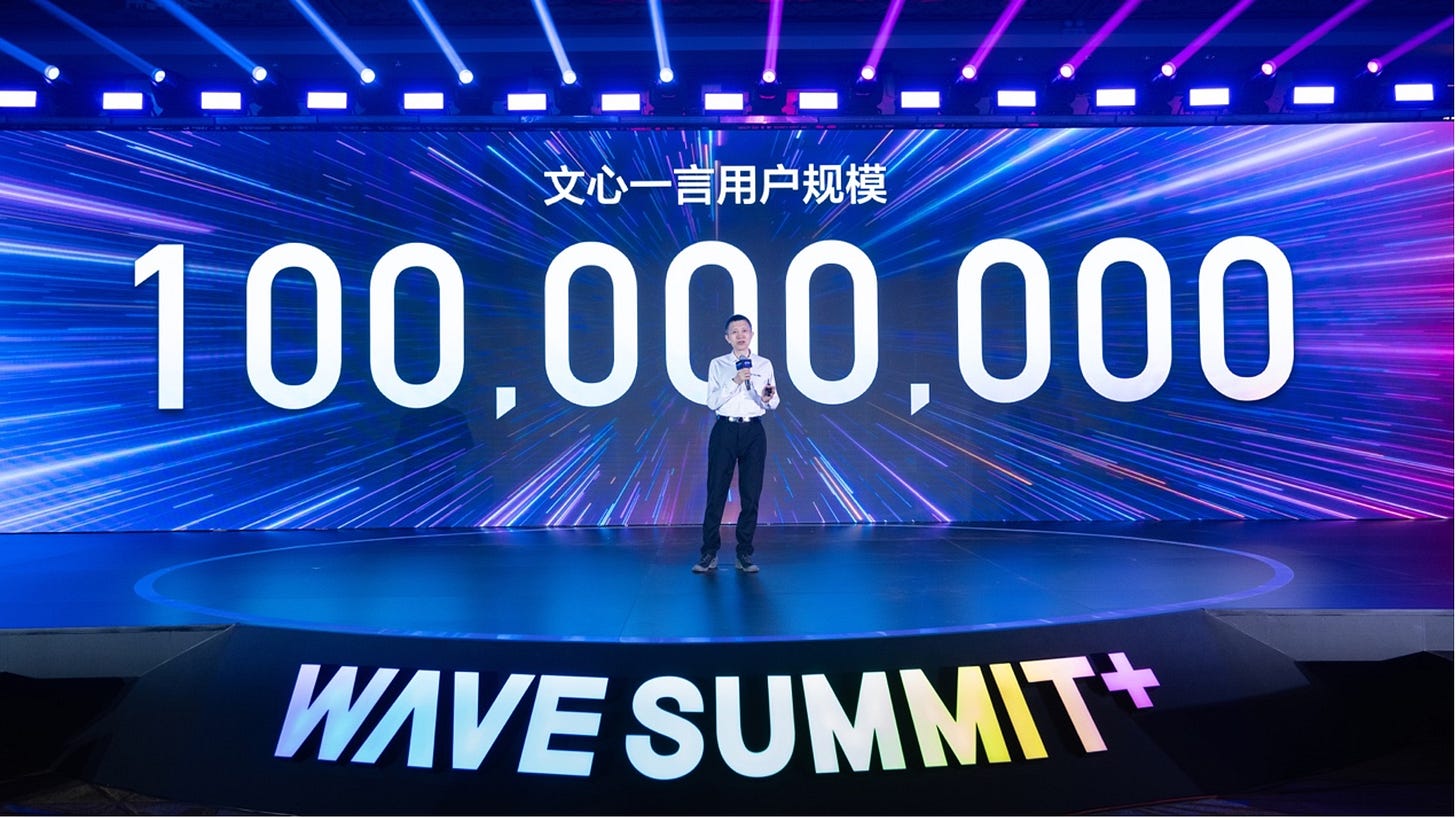Baidu's ERNIE Bot Surpasses 100M Users as its AI Portfolio Marks Strong Adoption
Generative AI chatbots lead the adoption wave
Baidu's ChatGPT alternative, ERNIE Bot, has reached over 100 million users, according to company CTO Haifeng Wang. Ernie Bot received approval from the Chinese government to launch it publicly in August, giving it four months to reach the 100 million user mark, which ChatGPT achieved in less than half the time.
First Mover Advantage
ERNIE Bot was developed using the ERNIE 4.0 large language model (LLM). Baidu has a premium version of ERNIE Bot, which costs about $8 per month, and a free version. ERNIE 4.0 was launched in October and is positioned as a rival to GPT-4. The model is currently restricted to invite-only access. Both ERNIE 4.0 and ERNIE Bot are available in Mandarin and English.
In addition to serving as a foundation for ERNIE Bot and for enterprise applications, Baidu has indicated the LLM will also be integrated into search. We assume this will be similar to the Google SGE implementation as opposed to the Microsoft Copilot (formerly Bing Chat) user experience.
Baidu’s Haifeng also indicated that the open-source AI development framework, PaddlePaddle, is used by 10.7M devs as of Dec 2023 across 235,000 enterprises. Users have built more than 860,000 models.
These figures suggest that Baidu’s early introduction of ERNIE in the spring of 2023 before it was fully ready, helped the company take an early market lead. According to Reuters:
Analysts said that while the partial unveiling in March was underwhelming, it still gave the company a valuable first-mover advantage in a market that has since become crowded with dozens of players, as Chinese tech companies, large and small, look to develop their own chatbots powered by generative artificial intelligence (AI).
CNBC added more context around Baidu’s AI rivals, such as TikTok, Tencent, and Alibaba:
TikTok parent ByteDance offers a chatbot called Doubao, which ranked second in the free-to-use productivity category in Apple’s app store in China as of Friday morning.
Tencent and Alibaba have focused more on AI products for business partners, but both offer chatbots to the public in China. Tencent’s sits inside its widely used WeChat messaging and social media app.
Baidu has generally led the Chinese market in AI applications, similar to Google’s position in the U.S. and Europe. However, the company saw how OpenAI usurped Google’s early lead in generative AI with the succession of product releases such as DALL-E, Whisper, GPT-3.5, ChatGPT, GPT-4, and GPTs. Baidu is looking to solidify its lead generative AI market adoption, and its aggressive launch and marketing programs appear to be delivering results.
Bots Take the Lead
Whether it’s the U.S., Europe, or China, generative AI’s killer app is intelligent chatbots. These bots have broad feature sets and serve three purposes.
They provide immediate value to everyday users for both personal and business activities.
They provide a canvas for showcasing a wide variety of capabilities across text, image, video, and audio modalities.
They introduce users to a new computing paradigm that has helped drive interest in employing the technology for other use cases that don’t rely on chat.
LLMs offer tremendous value. Chatbots helped everyone realize it. ERNIE Bot is just the latest example.
LLMs are not inventions, they are Discoveries. How That Fact Changes Adoption and Outlook.
In his recent interview on the Lex Fridman podcast, Jeff Bezos said something that may help people understand what is happening with large language models (LLM). It is the type of insight that often comes from someone who is not on the front lines but has the perspective of distance coupled with the knowledge of an insider and intimate familiarity with …
OpenAI and Microsoft Sued by New York Times for Copyright Infringement
That didn’t take long. Yesterday, we wrote about Anthropic’s new indemnity protection for users. That article concluded with the line: 2024 will be a year when generative AI goes to court. Earlier this morning, the New York Times filed a lawsuit naming OpenAI and Microsoft over the unauthorized use of copyrighted material to train large language models (L…








